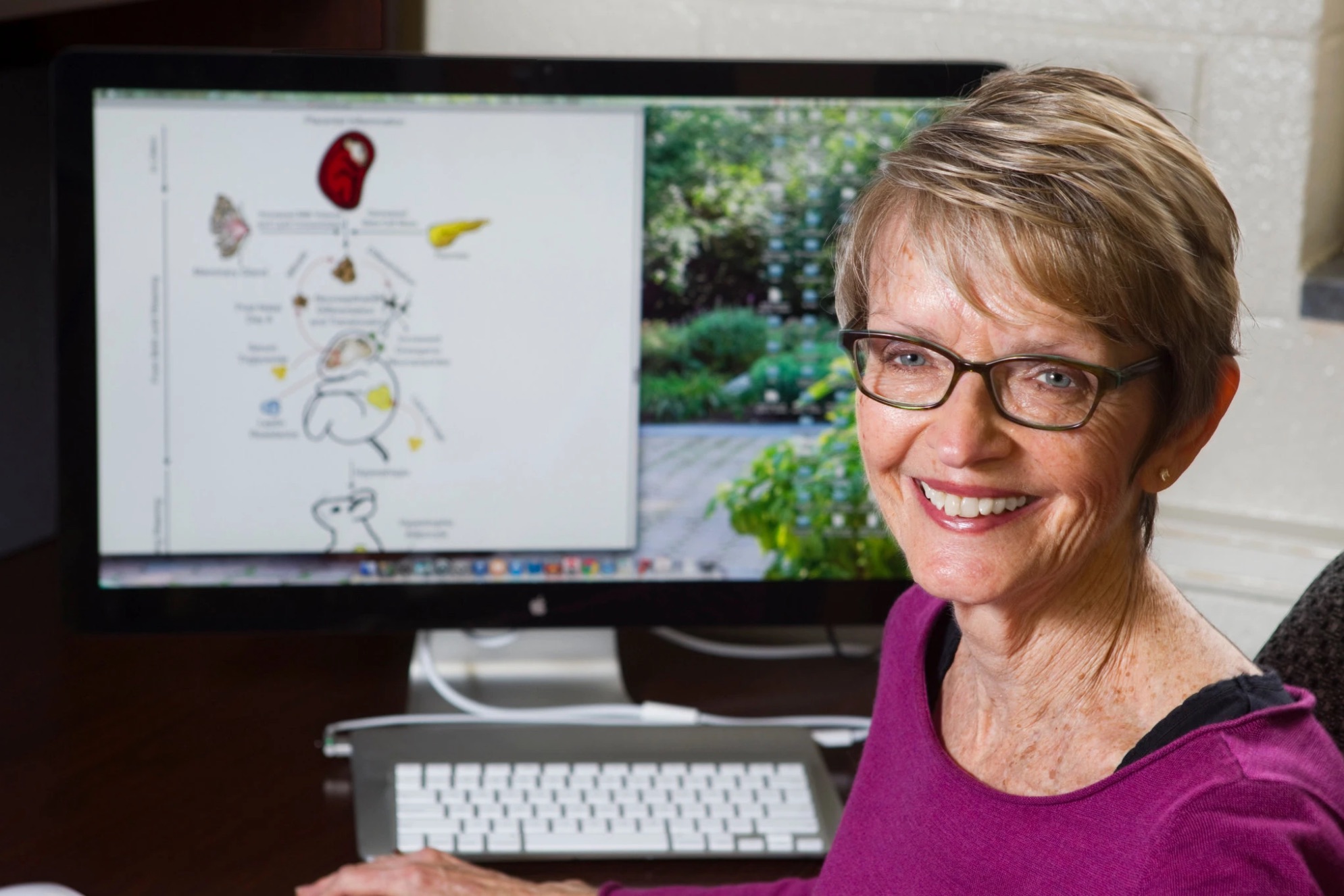
The late Leann Birch, a former Penn State distinguished professor of human development and family studies and former director of the Center for Childhood Obesity Research in the Department of Nutritional Sciences, was honored at the 27th Annual National Symposium on Family issues, held recently at Penn State’s University Park campus.
The two-day event, held each fall, focuses on a new theme of multidisciplinary interest every year. The 2019 symposium concentrated on the relationships between families and food, which align closely to Birch’s nationally recognized research on children’s eating habits and factors that control their food intake. The symposium included several speakers directly influenced by Birch’s impact as a researcher.
Lori Francis, associate professor of biobehavioral health at Penn State and lead organizer of this year’s symposium, opened the event by sharing her thoughts about Birch, who passed away earlier this year. Francis was a former student of Birch in the College of Health and Human Development.
“She was known for the ground-breaking research she conducted in the nutritional sciences that resulted in over 250 publications and more than 51,000 citations,” Francis said. “Birch was also awarded over 30 million dollars in federal funding to support her work.”
The symposium sessions kicked off with a talk on relationships between structural and social adversity and food insecurity in families with young children given by Angela Odoms-Young, associate professor of kinesiology and nutrition at the University of Illinois at Chicago.
Odoms-Young highlighted food insecurity as a multi-dimensional process and a consequence of economic disadvantage, racial segregation and incarceration despite access to food being a basic human right. She collaborated with Birch on the “Expert Panel of Healthy Eating Research” that helped produce national feeding guidelines for toddlers and infants in February of 2017.
Thomas Power, professor human development at Washington State University, was also a contributor to the symposium and spoke on feeding styles and child eating behaviors as an approach to combating childhood obesity.
During his talk, Power brought up the unusual topic of how to get a child to eat peas, which was a fitting reference to Birch’s research regarding her success in finding new insights toward children who are particular eaters. “Just after Dr. Birch’s death, the New York Times deemed her as the researcher ‘who knew how to get a child to eat peas,’” said Power.
Barbara Fiese, professor of human development and family studies at the University of Illinois at Urbana-Champaign, discussed the importance of family meals for overall family functioning and organization. In a luncheon following the symposium, Fiese remembered Birch as a planter of seeds, noting her role in nurturing the career development of many young investigators.
Kirsten Davison, a former student of Birch, and a Donahue and Defelice Endowed Chair and associate dean for research in the School of Social Work at Boston College, co-authored a groundbreaking paper with Birch on contextual influences on childhood overweight and obesity development.
At the symposium, Davison talked about food parenting with a specific focus on fathers’ engagement in child feeding while underscoring the need to turn attention to this understudied population. “Fathers are engaged in child feeding, but at lower levels than mothers,” she said. “Fathers perceive their role as being important, but working full-time can be a barrier.”
According to several of the presenters, many of these topics require additional research to develop interventions and policy changes to address food inequities and increase families’ capacity to promote healthy eating behavior and dietary patterns in their family members.
“The symposium brought together some of the most renowned scientists that examine relations between food, families and health, many of whom were heavily influenced by Birch’s work,” Francis said. “I left with an excitement about the direction the field is going in and am confident that the presenters inspired new research questions for those in attendance.”
The Symposium on Family Issues is sponsored annually by the Eunice Kennedy Shriver National Institute of Child Health and Human Development. Penn State sponsors include the Social Science Research Institute; Population Research Institute; Department of Sociology and Criminology; Child Study Center; Department of Human Development and Family Studies; Department of Psychology; Department of Agricultural Economics, Sociology and Education; Edna Bennett Pierce Prevention Research Center; Department of Kinesiology; Department of Biobehavioral Health; Department of Nutritional Sciences; and Clinical and Translational Science Institute.